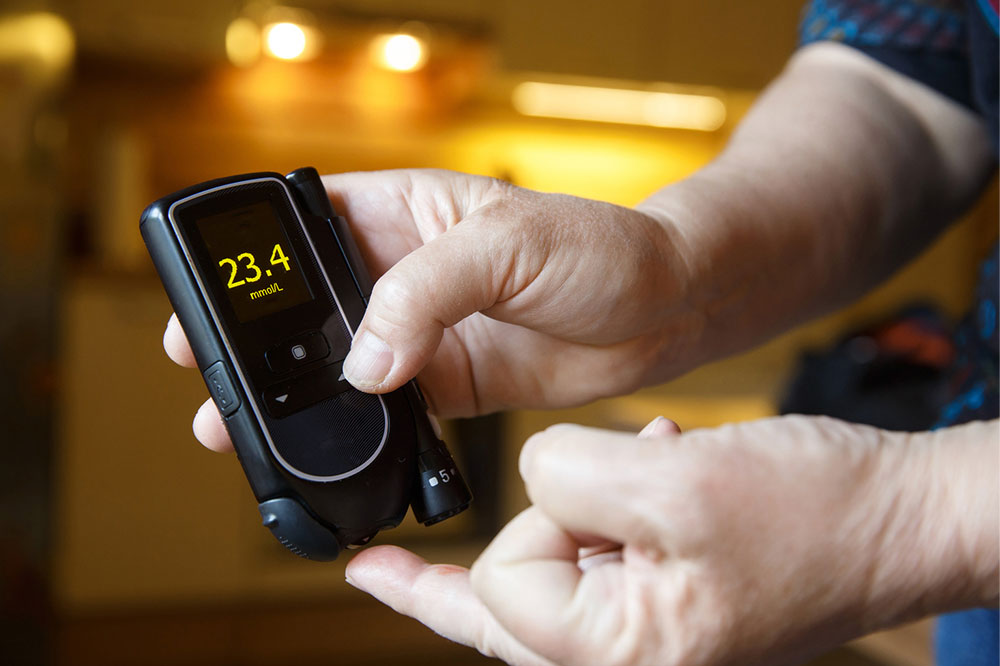
Managing Diabetes with Simple Dietary and Lifestyle Changes
Healthy food and regular physical activity are the two most important things for maintaining a healthy lifestyle, especially for people with diabetes. If you have diabetes, you must know about some simple yet effective ways to keep your blood sugar levels under control. This will help to lower the risk of associated problems such as vision loss and kidney disease.
Here are some important dietary and lifestyle changes to manage diabetes.
- Index your food
Eating too many carbs can cause your blood sugar level to rise. Different food items come with a glycemic index (GI) that measures how fast your blood sugar will spike. The higher the GI number, the more quickly will the blood sugar level go up. So, try to add low-GI food items to your diet such as fruits, non-starchy vegetables, oatmeal, legumes, and dried beans. Avoid processed foods such as pretzels, white bread, and white rice as they tend to have a high GI. - Boost your fiber intake
Eating 25-30 grams of fiber every day is considered to be healthy, especially for people with diabetes. You can gradually increase the intake. - Drink plenty of water
Not having adequate fluids in your body can negatively impact your blood sugar levels. Drink plenty of water throughout the day to keep the fluid levels high. However, it is advisable to avoid fruit juices as these can increase the blood sugar levels. - Eat consistently
This is one of the most important dietary and lifestyle changes to manage diabetes. Eating too much in one go and then eating nothing at all can make your blood sugar level fluctuate. It is important to be consistent with your meals. Formulate a robust diet plan after consulting your doctor to make sure you eat the right kind and amount of food. - Exercise daily
Being active helps to make your body more sensitive to insulin, which in turn, keeps blood sugar levels steady. To begin with, you can try an aerobic workout, such as walking or biking. You must exercise for at least 30 minutes, five days a week. Gradually, you can move on to resistance training that helps to strengthen body muscles, where most blood glucose is stored. Brisk walking is also beneficial for managing diabetes. - Choose a good time to exercise
Some people feel that working out early in the morning helps to keep their glucose level in check. You can try working out at different times of the day to determine what suits you best. Also, always carry an emergency snack or glucose tablets while exercising, especially if you take insulin. - Do not rest immediately after a meal
Generally, it is seen that a 10-15 minutes’ walk after a meal helps to prevent the blood sugar level from spiking. This is one of the simplest lifestyle changes to manage diabetes. When you take a walk after a meal, more blood gets transported to the muscles instead of the stomach, which helps to better digest the sugars.
These are some simple dietary and lifestyle changes to manage diabetes. Keeping these points in mind can help you lead a healthy and normal life without any complications.



